
Caring for your clothes is more than just folding them nicely and placing them in your wardrobe. If you want your clothes to last longer, it’s crucial to start from the beginning: during the washing process. But aside from washing, you should also make sure to make it last longer. Sustainability is an important topic, as it ensures we all start paying attention to the environment through our day-to-day habits and practices. Although it might seem confusing at first, once you get going, you’ll be able to pull it off with ease. So for that reason, here are some sustainable clothing care tips.
1. Buy quality clothes
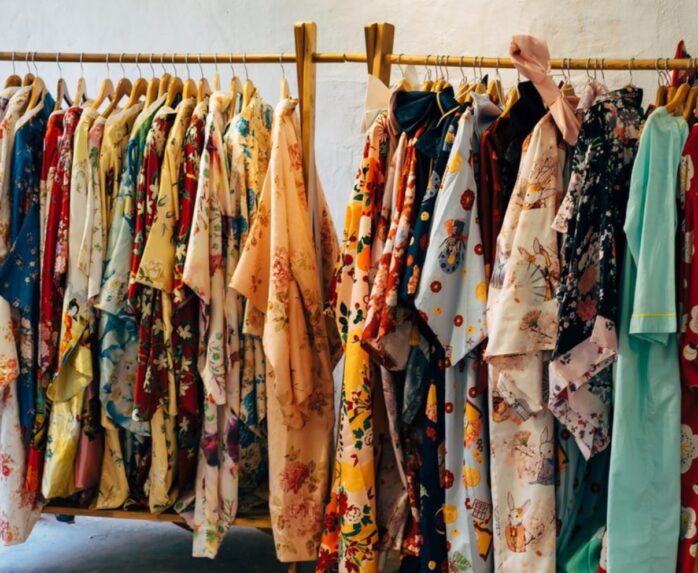
This is the first step toward achieving a sustainable wardrobe. The fast fashion industry relies on endless consumerism and our shopping habits, which is why it’s essential to buy clothing items that will last longer, due to their quality. Therefore, if possible, look for brands that use eco-friendly manufacturing practices. Also, shopping locally is a great idea, since many smaller brands tend to pay attention to the fabrics they use as well as other important aspects of production.
2. Wash your clothes less frequently
Sustainable clothing care and washing less go hand in hand. Since each washing cycle uses a lot of energy, it’s crucial to wash your garments less frequently. This is due to the fact that frequent washing tears out clothes. This means that you don’t have to automatically toss every garment into the laundry basket unless they’re obviously dirty or sweaty of course. So try wearing your clothes a few times before you decide to wash them. Not washing them that frequently will also protect the fibers and colors over time.
3. Follow the wash and care instructions
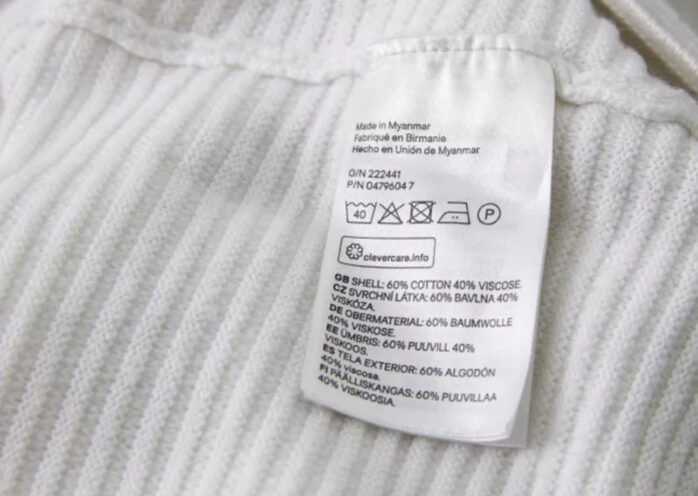
All those care instructions exist for a reason: to be followed in order to keep your clothes safe and durable. In order to wash your clothes properly, you need to be familiar with the materials you’re working with. This is all written on the label. Since each garment is made of different fabrics, it only makes sense to treat each one of them according to the care instructions. In order to make this a habit, be sure to check the label before you throw the garment into the laundry machine. Knowing this will make you more careful regarding your consumption, plus you’ll learn more about different fabrics and their appropriate washing methods.
4. Opt for air-drying
Using a clothes dryer is quick and convenient, mainly during the winter. However, air-drying is a more eco-friendly decision, mainly as it doesn’t use any additional energy. The smell of air-dried, freshly washed clothes is something each one of us should experience at least once. Yet, it’s essential to point out that using a tumble dryer might cause long-term damage to certain fibers, such as jeans, for example. So if you have enough space, plus it’s pleasant outside, make sure to shake your wet clothes, and then hang them on a clothesline or a clothes rack. You’ll be very pleased with the results, plus you’ll save money you’d otherwise use on paying your energy bills.
5. Use professional services mindfully
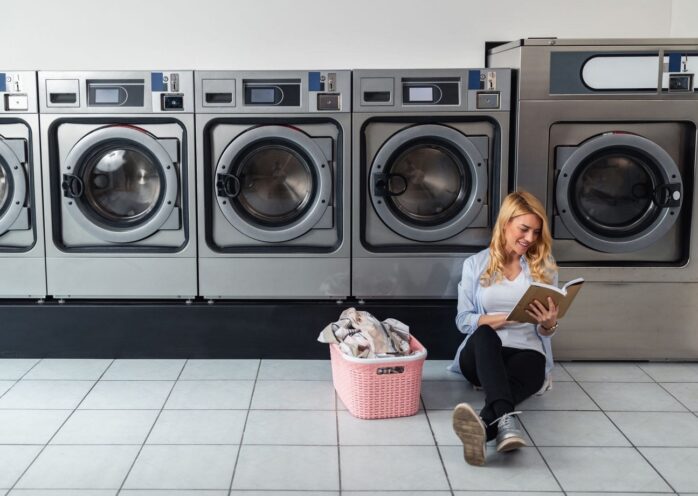
Sure, a laundromat or dry cleaners are super convenient and also important. However, they shouldn’t be your go-to solution whenever you need to care for your clothes. Many laundry services use harsh chemicals to clear out the stains, and these chemicals might damage clothes in the long run. Instead, try washing your own clothes, and use professional services when you cannot find other solutions. If you have to use them, then make sure that the business of your choice is focused on eco-friendly business methods. Laundry services and cleaners such as one at GreenerCleaner use zero petrochemicals in their work, which is great news for the environment. Since abolishing certain habits and practices isn’t always feasible, then it’s important to find sustainable and green alternatives that will provide you with equal comfort and care.
6. Store your clothes properly
Proper clothes storage will make sure it lasts longer, as it won’t cause unnecessary creasing and damage. Knowing how to properly store your clothes is the next step after washing, drying, and ironing. It’s widely recommended you store your clothes in a cool and dry place away from moisture. In case you plan to reduce washing, then it’s of utmost importance to never mix dirty and clean clothes in the wardrobe. Because if there’s dirt, that might attract moths, which tend to ruin clothes. If possible, add some dried lavender preventatively to protect your clothes while keeping them in the wardrobe.
7. Use eco-friendly detergent
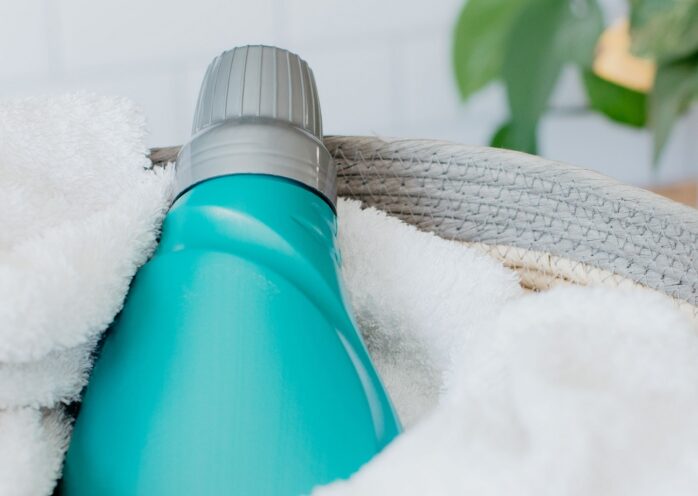
It’s impossible to thoroughly wash clothes without the detergent, and therefore, make sure to use an eco-friendly detergent without harmful toxins that flow through the washing machine and end up in the wastewater, and thus, rivers and oceans. Eco-friendly detergents are made without any petroleum-based, non-renewable chemicals, which is why they’re the best solution. Also, fabric softeners are also known to contain irritants and harmful chemicals. So natural soaps are a better alternative, especially since they also have a lovely smell!
8. Use cold water when washing
Hot water is more effective when killing germs, but in reality, high water temperatures can also damage your clothes, shortening their lifespan. Hot water also causes fading, shrinkage, and loss of microfibers, which is why it’s opt for cold water, or at least, lukewarm temperatures. This will protect the materials, but also save a lot of energy. Back in the day, people used hot water as it was needed to activate the detergents, but modern-produced detergents can do that in cold water just fine.
9. Mend and repair your clothes
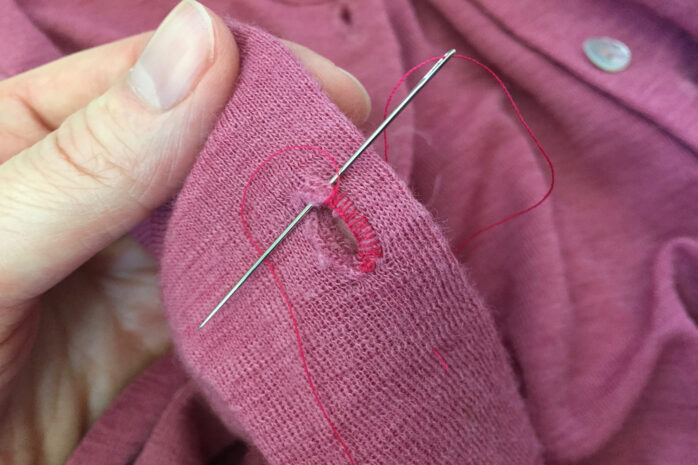
If you want to live a more sustainable lifestyle, then it’s necessary to curb your consumption and learn how to mend your clothes. Repairing your garments will also make you feel more accomplished since this is an important and beneficial life skill. Sewing a hole or a button isn’t difficult, and it will make sure your clothes are in wearable condition for much longer.
Conclusion
These sustainable clothing care tips will help you keep your clothes durable, so you won’t consume that much energy and other resources. As long as you’re mindful and careful, you’ll have clean, tidy, and long-lasting clothes to wear.











